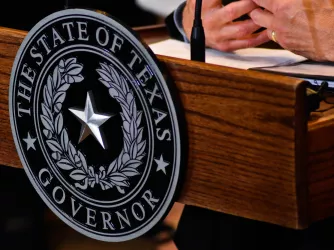Table of Contents
Speech Codes, Economic Incentives, and Qualified Immunity
On the blog Let A Thousand Nations Bloom, Patri Friedman has an interesting post about the power of incentives to change people's behavior in the aggregate, whether or not each person is personally motivated by the moral, political, legal or social argument behind the change. Friedman, who is the grandson of Milton Friedman, argues that although communication and persuasion through argument have some ability to get people to act a certain way, in the complex modern world, economic incentives hold the key to changing behavior on a large, societal scale. Why is this related to FIRE, you ask? Read to the final two paragraphs of the blog entry, and you'll come across this example used by Friedman to illustrate his point:
Now, let me give you an example of a more realistic strategy. Last weekend, I met Greg Lukianoff, president of FIRE, the campus free speech organization that challenges unconstitutional speech codes, and he told me about a very exciting strategy they are pursuing. One of the reasons why universities are so anti-free speech is that the politically correct activists and the lawyers (worried about lawsuits for hate speech or whatever) are on the same side, telling administrators to crack down on anything potentially offensive.
Right now, the administrators have "qualified immunity" against liability for their censorship, as they are acting in good faith, not knowing that these speech codes are unconstitutional. However, since almost every speech code challenged in court has been struck down, it is not actually reasonable or in good faith for administrators to create or enforce these policies. At least, if they understand the legal landscape. Which is why FIRE has sent a detailed explanation of the unconstitutionality of these speech codes by certified mail to 300 schools. Now the administrators are provably informed, which removes their immunity and renders them personally liable for their unconstitutional actions. Thus dramatically changing their incentives. Now that's fighting for freedom with the power of economics!
While not taking a position, for our purposes here, on Friedman's overarching point about the power of incentives versus communication, I will say that it is disappointing to think that administrators may be more motivated by economic incentives than principled arguments. Still, I want to echo his thoughts on the importance of pursuing the piercing of university administrators' qualified immunity.
Piercing qualified immunity would mean that the door is open for a wronged student to pursue monetary damages directly from the responsible official in his or her personal capacity. The value of this strategy is an argument FIRE has made many times before, one that was behind our national mailing campaign to which Friedman refers. Furthermore, the argument for piercing qualified immunity is one that you can find in FIRE's legal scholarship.
The fact is that courts have long held that students and faculty on public university campuses are entitled to the full enjoyment of their First Amendment rights, and that speech codes are especially pernicious and indefensible in a setting that is supposed to be a true marketplace of ideas. That explains why over the course of the past two decades, courts have uniformly invalidated speech codes on their face on constitutional grounds, with the latest such decision going against Tarrant County College in Texas earlier this year. As Friedman recognizes, it is therefore patently unreasonable for university officials to argue that the law is not clearly established with respect to speech codes and their interference with First Amendment rights.
Like Friedman, I hope that if a court were to pierce qualified immunity in a case where a student alleges deprivation of his or her First Amendment rights, the opinion would send a powerful message that administrators will be hard pressed to ignore. Putting administrators personally on the hook for damages would, I believe, change their behavior drastically. No longer able to hide behind their institutions, administrators would have to face the consequences for their actions depriving students of their free speech rights. I should think that any rational official would have to think long and hard before acting in such a manner, lest he or she face financial punishment (and personal humiliation) in court. In this way, the First Amendment would gain greater adherence and respect on public university campuses, and student rights would be advanced.
I have much optimism about using the strategy of piercing qualified immunity to advance students' free speech rights at public colleges and universities. I thank Friedman for his thoughts on this important matter.
Recent Articles
FIRE’s award-winning Newsdesk covers the free speech news you need to stay informed.

Gov. Greg Abbott’s order ‘hardening state government’ against China is dangerously hard to parse

Right, left, and in-between: Can we bring our differences to the table?

From the UK to Germany to Singapore: Police are watching what you post
